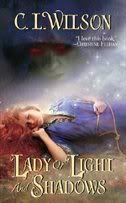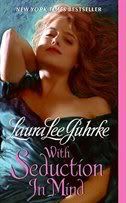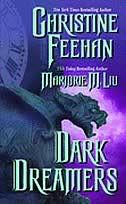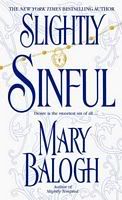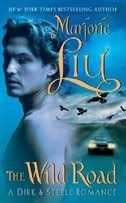For Heroines, we got:
- 2 Self-Hating Redheads with Low Self Esteem
- 1 Independent Pastry Chef
- 4 (!) Plucky Orphans Who Fleece Aristocrats to Survive
- 1 Psychic Amnesiac
- 1 Secret Authoress
- 1 Intrepid Reporter
- 1 Fake Highwayman
- 1 Sexy Superhero
- 1 Broody Angsty King
- 1 Broody Angsty Fake Duke
- 1 Broody Angsty Reformed Rake
- 1 Broody Angsty Soon-To-Be-Reformed Rake
- 1 Non-Psychic Amnesiac
- 1 Lovable Gargoyle Bookworm
- 1 Lonely Science Nerd
- 1 Haughty Aristocrat
- "I can't love her - she's got an Evil Mole of Evil on her boob!"
- "I can't love him - he's just like my abusive, now-dead husband!"
- "I totally love her - but she might think I'm ugly and weird!"
- "I can't love her - she works with her hands! Gross!"
- "I can't love her - I'm wanted for forgery!"
- "I can't love him - the sex is just too tempting!"
- "I can't love her - I'm trying to solve the Case of the Murdered Sheep!"
- "I can't love her - for all I know, I could be married already!"
- "I can't love her - she made my best friend commit suicide!"
- "I can't love her - I'm too busy micromanaging my estates!"
- 1 Vanishing Bull
- 4 Happy Hookers
- 1 Elephant (Metaphorical and Literal)
- 1 Vengeful Ghost
- Several Hardcore Guilt Trips
- 1 Seven-Hour, Magically-Induced Orgy
- 2 Unwelcome Stalkers
- 1 Stolen Hair Ribbon
- 2 Cases of Amnesia
*January Pick* The Wild Road, by Marjorie Liu. A+
Winner of the "Better Make Mine Beta" Hero Award
Liu's novel impresses - we have a gripping narrative, a tough but vulnerable heroine, an absolutely adorable gargoyle hero (described as a "creature of books and tea"), great worldbuilding and description, a self-contained story - and it's the eighth book in a series, if you can believe it. It's difficult to find anything wrong with this story - but the best aspect is undoubtedly Lannes, our sweet-natured bookworm hero who has to hide his gargoyle face under a glamour for fear he'll be rejected by the heroine, whom he saves from bullets and magic even though he'd rather be safe at home in Maine with his books and a nice cup of Green Chai.
Lessons in French, by Laura Kinsale. A
Winner of the Best Reason To Learn a Foreign Language Award
Many readers around the blogosphere are doing jumps for joy at the prospect of the legendary Laura Kinsale returning to writing after a five-year absence. I've only become a rabid, foaming-at-the-mouth fangirl within the last year, and have so far only managed to devour three of her excellent novels, Lessons in French included, but the rest (except for the frustratingly hard-to-find Dream Hunter) are on my TBR, I swear! I just feel the need to parcel them out, to spread out the joy of discovering them over a long period, like a squirrel with nuts over the winter. Lessons in French doesn't disappoint, even as it represents a departure from her signature dark-drama style. And hey, if you're interested in more - be sure to check in when I interview her on February 16th!
Scandal, by Carolyn Jewel. A-
The "Holy Crap" Surprise Death Award
Scandal surprises with a slow, delicate narrative where the rake is already reformed - he just needs 300 pages to help the damaged, heartbroken love of his life realize it. The story may seem familiar at first, but Jewel works it from a different angle and doesn't pull the usual narrative punches while doing it (hence the award - be warned, my review contains serious spoilers).
A Rake's Guide to Pleasure, by Victoria Dahl. A-
Winner of the Eloisa James Award in Historical Sexual Education
I opened this book expecting a run-of-the-mill Cold-Rake-Seduces-Damaged-Heroine story, but discovered so much more. With beautiful writing and graphic but relevant sex scenes, Dahl presents an insightful and developed examination of lust, the rules of morality society applies to it, and ultimately the damage loathing one's own sexuality can inflict.
Slightly Sinful, by Mary Balogh. A-
Winner of the "Which Award?" Medal in Amnesiac Characters
Ah, consistently good and prolific mainstay Mary Balogh, where would I be without you? I'd be without interesting amnesia plotlines and a well-written turnaround of the Distant Evil Uncle cliche, that's where! This second-to-last book in the Bedwyn series finds our second-youngest Bedwyn, Alleyne, trying to find love and recover from a memory-erasing head injury at the same time.
Proof By Seduction, by Courtney Milan. B+
Winner of the "I'm So Ronery" Hero Award
Making her full-length novel debut, Milan gives us a con artist heroine, an elephant, several oranges, and a hero who longs for friendship but has all the social skills of a Ken doll. The best part of this novel is watching Gareth struggle to express his feelings without insulting people (sometimes failing, but in failing, remaining endearingly earnest), and the second-best is encountering a heroine who demands respect as well as love from her significant other.
Before the Scandal, by Suzanne Enoch. B-
Winner of the Lamest Pay-Off Award
Enoch writes a pretty good mystery in this novel, where a soldier returns to his brother's estate only to discover a mysterious conspiracy to vandalize the land, but she forgets to add in a credible romance and a full-fleshed out female protagonist. Add to that a half-hearted climax at the end, and you have a solid novel that nevertheless feels lacking.
Lady of Light and Shadows, by C.L. Wilson. C+
Winner of the Gold Medal in FeminismFAIL
Fantasy-wise, this second novel in the Tairen Soul series is a definite improvement from its predecessor - it has better pacing, better drama, more world-building, good description. However, character-wise, it still suffers from two lame protagonists and a dearth of female characters who a) contribute to the story and b) aren't conniving, vain, whorish shrews.
Karma Girl, by Jennifer Estep. C+
Winner of the "Where's the Beef?" POV Award
This novel, about a reporter who, after building her career unmasking superheroes, is attacked by supervillains and forced to rely on the very people she persecuted, suffered from the most common problem in Paranormal Romance today: great world-building, great science-fiction/fantasy, but boring writing and underdeveloped characters. It didn't help that the story is told entirely from the woman's POV, giving us little to no character development in the male protagonist, a sexy superhero named Striker.
*January Dud* Secret Desires of a Gentleman, by Laura Lee Guhrke. C+ (Note: While technically Lady of Light and Shadows and Karma Girl received the same letter grade, LoLaS skips ahead by virtue of the fact that it is an improvement over its previous novel, and KG had some good worldbuilding and action - so in this case, SDoaG and its Asshat hero sink to the bottom of the pile)
Winner of the Heathcliff Lifetime Achievement Award in Asshat Heroism
In the third book in Gurhke's Girl-Bachelor series, strong, independent Maria falls for a man who first ignores her, than insults her, then says they can never be together because they are too different, then insults her again, then has sex with her, and then somehow convinces her to give up her entire life's work to be with him. It's essentially Twilight with pastry, and twice as dull.
Non-Romances I Read This Month:
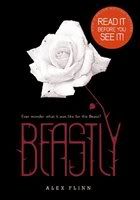 Beastly, by Alex Finn A-
Beastly, by Alex Finn A-Okay, I'll admit I read this book for the movie adaptation which is due out in July, but I found I really enjoyed this modern YA retelling of Beauty and the Beast, told from the Beast's point of view. In this case, our monster is Kyle Kingsbury, a popular but vicious high-school Adonis who pisses off the wrong witch by giving her a bogus invite to prom. In revenge, the witch turns him into a hideous beast - with two years to fall in love and be loved in return. Kyle's experiences as a beast, especially after being abandoned by his selfish and vain news anchor father, are evocative, painful, and incredibly sad - Finn does a great job capturing Kyle's voice, which is at times immature but often unwittingly perceptive. When he ends up falling for Lindy, an honours student from a severely broken home, the result is unsurprising but emotionally satisfying nonetheless. How many months until July again?
 In the Company of the Courtesan, by Sarah Dunant A
In the Company of the Courtesan, by Sarah Dunant ADunant's lushly-described historical novel about a 16th century courtesan and her dwarf companion Bucino who flee the sack of Rome for the safer shores of Venice, doesn't have much of a central plot line but doesn't really need one. Simply reading about Bucino (the narrator) and his efforts to restore his courtesan's career, all the while surrounded by gorgeous descriptions of Venice and its colourful inhabitants, is a satisfying read.
Iron Khan: A Detective Inspector Chen Novel, by Liz Williams. C+
How do demon seneschals, evil Mongolian war leaders, jolly British ghosts, giant cranes, insane Heavenly Empresses, and magical fetuses combine to make a story? Read my take from The Green Man Review.
